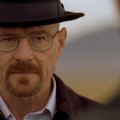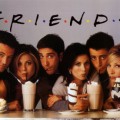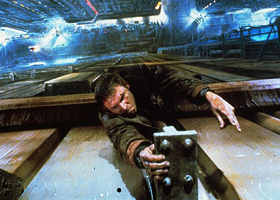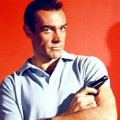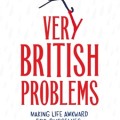Tom Gillespie Is The Next Dan Brown, But Don't Hold That Against Him...
Author Tom Gillespie’s novel ‘Painting by Numbers’ has been nominated for The People’s Book Prize, but he'd rather be known as 'the next Murakami' than 'the next Dan Brown'.
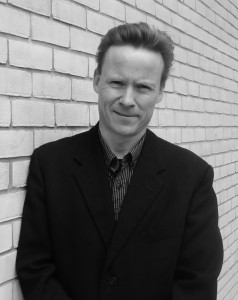
Indie publishing is taking over the world and unearthing some of Britain’s finest writers. One such writer is Scott Tom Gillespie, whose intelligent debut ‘Painting by Numbers’ has received prize nominations and favourable comparisons to two of the world’s bestselling authors. Tom spoke to me about his success, obsessions and dealing with critics.
Hi Tom. Your debut novel ‘Painting by Numbers’ has been selected as a finalist for The People’s Book Prize. How did that come about, and how did you feel upon hearing the news?
The People’s Book Prize was established to showcase and promote new books by debut authors. Publishers across the UK are invited to submit novels, and my publisher Crooked Cat, put Painting by Numbers in the ring. Then, from a long list of nominations, the public are invited to vote on their favourites. Every three months, 3 books are selected for the final, and I was absolutely astonished and delighted when I found out Painting by Numbers had made the cut. I have a lot of respect for The People’s Book Prize organisers and their democratic approach to the selection process. I was up against quite few big name authors from the major publishing establishment, so to come out on top felt very sweet indeed. I am very proud of my book, and I am always more than willing to fight its corner.
There is a second round of voting between 21st and 28th May, and the public will be asked once again to pick their favourite from the shortlist of twelve. The award ceremony is in London on the 29th, and the winner will be announced during the ceremony. I’ve heard that a film crew will be there, making a documentary, along with the hoi polloi of the publishing world, so I’d better be on my best behaviour.
How did you start writing, and how old were you when you had your first piece of work published?
I’ve always been a bit odd and at odds with the world around me. When I was a child, my mother used to worry (I’m sure she still does) that I didn’t socialise enough or engage more with my friends or life outside my head. I was always off on my inward travels, forever plotting out stories, inventing characters and hatching plans. Then, when I was around ten or eleven, I won a local writing competition and my story featured in the town’s Civic Week programme. It was a slightly surreal story about a group of miners trapped in a mineshaft (Freud would have a field day with that one). And from that point onwards, I have consciously followed creative pathways throughout my life. One of the main reasons why I write is to somehow try to make sense of the world but unfortunately, the worlds I create in my writing are far from sensible.
After graduating from a Masters in English at Glasgow Uni, you took the next logical step and spent 10 years pursuing a career as a singer/songwriter. How did that come about?
When I was a student, I was involved in a number of creative projects including song writing and music. I performed solo and with a few friends in local venues and clubs around Glasgow. When I finished my degree, I had absolutely no idea what to do with my life –what the hell can you do with a degree in English Literature ? So I carried on - and on with my music. I put a number of bands together and in various guises we gigged around the country and busked our way across Europe. The money was terrible, but for a while it seemed like fun, living out of rucksacks, on tins of sardines, ketchup and other interesting artificial stimulants, but it was inevitable that it would all come crashing down.
To be honest, I found the whole band thing quite difficult, probably because I prefer working and writing on my own. We started out on some hedonistic bohemian road trip, but after a few years of living in poverty, it all becomes too ludicrous to bear, and I retreated to the suburbs and the relative safety of my writing desk.
You’ve since settled down and now work as an English lecturer at Bath University, how have your students reacted to your success as an author? Have you been tempted to stick it on the curriculum?
I love that phrase, ‘settled down’ - sometimes I do feel like an old house that is slowly sinking into own foundations. My students know nothing of my parallel existence. Tom Gillespie is my published name, but at work I wear a wig, false beard and comic glasses, and answer to another name. I like to keep things separate, though the thought of flogging a few hundred books per semester is very tempting.
How long did it take to write ‘Painting by Numbers?’ I wrote my first novel whilst I was a student, and you’ve presumably written yours whilst working as a lecturer. I imagine organising lectures was as much of a distraction as pretending to go to them?
Painting by Numbers took around 5 years to write, give or take a couple of nervous breakdowns. I work full-time at the University, so I have to organise my writing around that. I wrote the stream of consciousness drafts fairly quickly. At a couple of points along the way, I rented a caravan down in Devon and scribbled out long sections of the book. Then when all the rushes were complete, I started the long and arduous process of deciphering and editing my scribbles. Editing is great because you can (and should) work in short bursts, which makes it much easier to fit around the other parts of your life.
The research was probably the most complex part of the process. From the start, I realised that the book would involve elements of art history and smatterings of mathematics. I am really fortunate to work at a university with one of the best academic libraries in the country and a magnificent maths department. So after a few enquiries, and plenty of free beers at the bar, I managed to convince a Maths professor and brilliant PhD student to help me work out the best way to incorporate the numbers and weird science into my book without losing the reader along the way.
More…
The blurb for ‘Painting by Numbers’ reads ‘Painting by Numbers is a dark, surreal thriller that follows one man’s relentless pursuit into an old truth buried deep within.’ What is it about obsession as a subject for fiction that fascinates us? Why is it so rich for exploration?
I think writers write about with obsession because we are all fairly obsessive ourselves. When you stop to think about it, the processes and practises of writing a book are pretty intense and compulsive and I think it takes a particular type of brain to persist at it. So I suppose we tend to write about it because we can identify with the symptoms, and recognise the emotional and psychological fall out that comes from living with someone with an obsessive personality.
Alongside our own anxiety disorders, I think we live in very strange times, and it seems the only way our brave new world can function is through our constant and weird obsessive behaviours. Our fixation with technology is fuelling our alienation and isolation from each other and the world around us. We seem to be disappearing deeper and deeper into our own minds, living inside separate augmented realities. We used to inhabit the real world. We made things. We colonised and built our empires, so that we could continue to make things and exert control and power over the world. But now, instead of inhabiting the physical world, we are colonising our own thoughts and building inward empires. And as we fade further into ourselves, our ticks, disorders and compulsive behaviours seem to be accumulating and accelerating. I find all of that fascinating and ripe for examination through fiction. The human mind is definitely not a safe place to live, but for me, it is an intriguing place to visit and explore, as long as I can remember my way back out into the daylight.
Your writing has been described as ‘hyper- realistic and ambiguous’. Do you think this is a bit of a paradox? Is this style something you were aiming for when you began writing?
I’m a huge fan of the great American literary tradition that stretches back to Mark Twain, and travels through Hemmingway and Fitzgerald, the hard boiled crime writers such as Dashiel Hammett, James M Cain and the beats, all the way up to Raymond Carver and beyond. I love the terse, stripped down style of American prose, but with an exact use of language that is loaded with layers of meaning and possibility. I think one of the reasons why I’m drawn to American writing is because there are stylistic parallels with the Scottish literary tradition, from Walter Scott’s ground breaking Waverley novels, to the works of Alasdair Gray, James Kelman and Janice Galloway. There is an almost presbyterian attitude to concise prose in Scottish writing , yet ambiguity and interpretation remain intact. And it is this paradox that makes the work interesting.
My short stories are often directly inspired or influenced by this stylistic approach to writing. But when I began working on Painting by Numbers I felt a needed to do something slightly different. As the narrative involves an exploration of hidden meanings in an allegorical painting, but also it’s about a man’s labyrinthian pursuit of the truth, I decided to juxtapose taut, direct prose with a slightly more elaborate and embellished use of language. In this way I hoped to contrast the visceral realities of Jacob’s predicament with the surreal, near-hallucinogenic internal workings of his damaged mind.
The book was also about allegorical Baroque painting, so I felt that I needed to employ a style that would capture and compliment the dark complexity of the art work that dominates Jacob’s life and psyche. Although ironically, I still think there is greater ambiguity and hidden meanings buried within the simple prose.
You have a fantastic blog where you’re currently working your way through a post for each letter of the alphabet. Do you think blogging is vital for an author nowadays?
I must confess that I hate blogging, and I found the whole April Blogging Challenge an arduous and wearisome chore. I don’t know why everyone has to ramble on all the time about every inane topic under the sun – I’m doing it now – Blog after blog and page upon page of bubblespeak, on webs, blogs, twitter, facebook, email, mobiles. We seem to be surrounded by the relentless drone of white noise. Whatever happened to a respect for silence and contemplation. I don’t know if blogging is important in terms of promotion and marketing, all the social media gurus (whoever the hell they are) always go on about maintaining online presence and the importance of search engine optimization, but I really don’t know what difference it makes. I haven’t noticed much of an impact on visitor hits or book sales during my month in purgatory, so perhaps I’m not the best person to ask.
We’re both published by indie publisher ‘Crooked Cat Books’. What do you think the advantages are over having a traditional publisher, like Penguin, or one of the other big boys?
I’ve never had a book published by a major, so I couldn’t really comment on the advantages of one over the other. But so far, my experiences of signing to a small publisher have exceeded my expectations. CCP takes a very hands on and personal approach to supporting its authors. I have a lot of control over my creative output and a say in every aspect of the publishing process, from editorial decisions to cover design, launch dates and promotional activities. I think smaller publishers like CCP seem to be much more willing to embrace new technologies and innovations within the publishing industry, but also prepared to take risks with debut authors. And CCP has an energy and buzz about it that inspires and motivates me to write.
More…
Sex On Paper: Literature’s Womanisers And Their Randy Writers
Your reviews have been fantastic. Have you ever had one that’s not been what you hoped and has it got to you? Any tips for developing thick skin?
I’ve been very lucky that PBN has received so many great reviews, and it’s easy to pretend that reviews don’t matter or bother us when all is going well. But a negative review can feel like a brutal kick in the teeth, and sometimes it’s hard to rationalize or dismiss them when they come along. I’ve had one or two poor responses to the novel, but the funny thing about criticism is that rather than worrying about a wholesale bad review, I’ll fixate on a tiny comment or off the cuff remark buried within a good review, or fret over something a friend said a fortnight ago about a line in the book they didn’t like at the bottom of page 24. It can fester in my mind for weeks if I let it. But at the end of the day, we have to accept that if we are going to expose our private parts in public, we have to expect some people to laugh, point or mock. I’ve learnt that the best way to deal with the flak, is to pour a large glass of whatever, toast the reviewer and get on with the rest of my writing life.
Who were your main influences whilst writing? Do you take a lot of inspiration from art and literature, or do you find things to expand upon in places such as movies and everyday life?
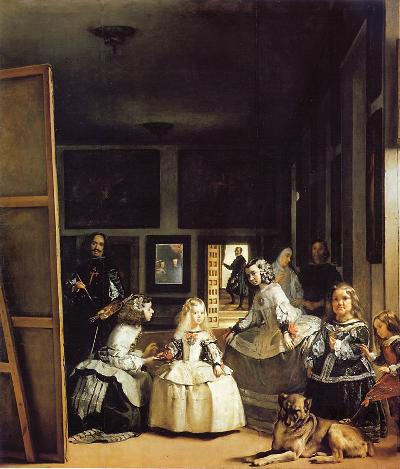
Diego Velazquez’s Las Meninas
I love Baroque art, and of course Diego Velazquez’s great mysterious masterpiece Las Meninas plays a key role in my novel. But I think my writing is informed by all sorts of influences, from writers and writing styles to music, songs and films. Music helps me find rhythms in the language and flow for my dialogues. But I think in many ways, the greatest influence on my writing is probably the language of cinema, and when I am constructing scenes and visualizing narrative structure, I’ll often think in cinematic terms in the ways I thread it all together. There are a number of film references in Painting by Numbers including Orson Welles great mockumentary, F for Fake, along with some intense Werner Herzog moments, the surreal weirdness of David Lynch and the horror of Nicolas Roeg’s Don’t Look Now.
You’ve been described as ‘the NEW Dan Brown with a splash of John Grisham.’ How does this suit you? I imagine, unlike those two, you aren’t lighting golden cigars with £50 notes or eating roast swan every day?
The whole Dan Brown thing is interesting. When the Da Vinci Code was released, I was living in Spain so I missed all the hype and hysteria, and to this day, I still haven’t read any of his books. I suppose it’s understandable that people will compare PBN to Dan Brown and the Da Vinci code, considering the subject matter. But apart from the art conspiracy, the weird maths, the frantic search for the truth, the page-turning, thrilleresque structure and the damaged central protagonist, the two books have absolutely nothing in common. In reality, anyone who reads my book looking for a bit of Dan Brown may be in for a shock. My novel is a genre-bending, hallucinogenic psychological drama, with surreal twists, and I would hope that my story has very different reasons to be told. I would love people to align my book alongside the works of writers such as Umberto Eco or Haruki Murakami but sadly I have no say in the matter.
And as for the John Grisham comparison… just send me the cheques and I’ll stop complaining about it.
The two movie adaptations of Dan Brown’s novels were a bit disappointing. If ‘Painting by Numbers’ was to be adapted, who would you like to see in the role of Jacob Boyce? Who would you like to direct?
Jacob is an intense complicated guy, and it would have to be someone who could walk the thin line between hero and anti-hero. I had James Mcvoy pencilled in for the role with Danny Boyle directing, but they’ve both gone off and made another art-themed movie without me, the bastards. So I’d go for perhaps the likes of Douglas Henshall (the Shetlands guy), James Nesbitt or John Simm, or budget and time permitting, Daniel Day Lewis - though an unknown actor might work best. We could even move the shoot to Sweden and hire the entire cast of The Girl with the Dragon Tattoo. I can see that working. As for the American release, I’d cast Ryan Gosling, oh sorry… that would be for my biography.
If I could choose any director, I’d probably pick Nicolas Roeg (the aged 50 version). I reckon he’d get right into to the mad heart of the book. But back in the real world, I would probably choose from David Cronenberg, Duncan Jones, Christopher Nolan or wonderful Scottish director Lynne Ramsay.
Finally, I sometimes think it’s hard for outsiders to keep track of new writers from the likes of Scotland or Wales. Obviously the likes of Irvine Welsh and James Kelman are well-established and fantastic authors, but are there any other Scottish writers you could recommend?
James Kelman and Irvine Welsh are indeed fabulous writers, but one of my great literary heroes is Alasdair Gray. Gray is the William Blake of Byers Road. His work is mind altering, life changing and wonderful. I also love the short stories of Agnes Owens and Janice Galloway, and the crime fiction writer Steve Christie. And earlier this year I read a brilliant, surreal novel called Wee Davy by the very talented debut author Andrew Doig. I’m also into other areas of creativity that’s busting out of Scotland, such as the inspirational photography of John Farnan, the glass artist Jane Reid and the excellent films of Lynne Ramsay.
Thanks Tom!
Painting by Numbers is available here and you can follow Tom on Twitter here.
If you like it, Pass it on
 COMMENTS
COMMENTS
No comments yet, be the first!


 RELATED
RELATED

